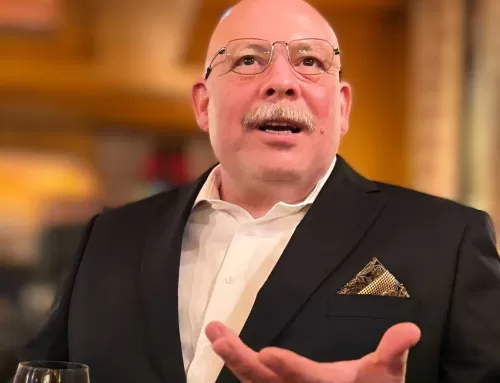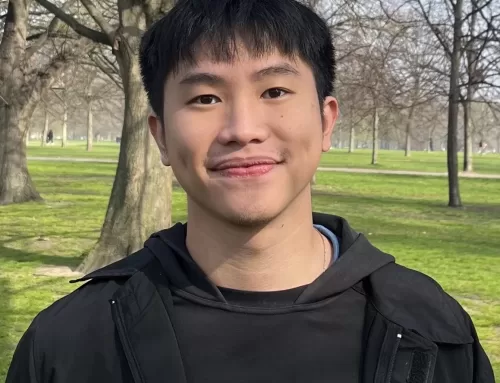Contributor: Christopher Solomon

![]() We all have that story. You know the one. How did you become a futurist? I think it is one of the first questions we are asked when we begin the Houston Foresight program in Intro. The answers are as varied as the diversity of the people who claim the title of futurist. I found my way here because of my oldest child. People were constantly asking her what she wanted to be when she grew up. She never really knew how to answer that question. When COVID hit, she found herself with a half of a school year wasted and a very uncertain future. She turned to podcasts to escape and felt she could do what they were doing. I was surprised to find out the younger generation were consuming podcasts in quite large numbers.
We all have that story. You know the one. How did you become a futurist? I think it is one of the first questions we are asked when we begin the Houston Foresight program in Intro. The answers are as varied as the diversity of the people who claim the title of futurist. I found my way here because of my oldest child. People were constantly asking her what she wanted to be when she grew up. She never really knew how to answer that question. When COVID hit, she found herself with a half of a school year wasted and a very uncertain future. She turned to podcasts to escape and felt she could do what they were doing. I was surprised to find out the younger generation were consuming podcasts in quite large numbers.
Together, we set off on a journey to help her discover what jobs were available, but not just ordinary jobs. What we discovered was that most teenagers in high school know intimate details about 6-8 careers. Their mom, dad, grandmother, grandfather, close aunts or uncles, and there very best friend’s mom and dad. They know of more jobs, police, firefighters, doctors, lawyers, et cetera, but not enough details to make a decision in (at least in Texas) he 8th grade when they are asked to declare a track for their high school planning. She focused on obscure jobs, like funeral directors, luthiers, and, luckily for me, futurists. Not long after she recorded her futurist episode, I was enrolling in the program. The first person I met was the youngest person in the program, and we became fast friends.
What’s the point of this? Had it not been for a futurist going where the people are, she nor I would have ever heard of this profession. We talked a lot throughout this course of studies about preparing the future, but how are we preparing for the future of foresight? As I write this, there is little to no undergraduate foresight training (certificate programs aside), there is little to no foresight training in schools (hats off to Peter Bishop who started Teach the Future, Garry Golden, as well as others who are pushing for more foresight education in schools), and little to no foresight advertising (unless you are connected to lots of futurists on LinkedIn or other social media platforms). These are problems that seem to be easily solved, yet we are not doing our part.
Here is the challenge. As futurists, we should be a source of outreach in our local communities. We have all had the adage drilled into our minds, “Think globally, act locally”. It is time we put that into action. We should be lobbying our school boards for curriculum that places an emphasis on the future. We should be make it a point to reach out to our local schools and find ways that we can interact to reach the youth. We need to engage on their platforms, on Instagram and TikTok and, yes, even Facebook. The point being, we need to go where the youth are. Lastly, we need to make the youth a priority in our professional organizations. By this, I mean they should be using our membership dollars to create and advertise the profession to energize the next generations.
There is no doubt that we all feel our work is impactful and critical to the future of business, government, oceans, economies, technology, or whatever our field of focus might be. If we are truly concerned about the future, why aren’t we trying to train up the next generation of futurists? Why are we waiting until they have a bachelor’s degree? Why are we waiting until they happen to stumble upon foresight? What are we waiting for? Let’s change the future.




